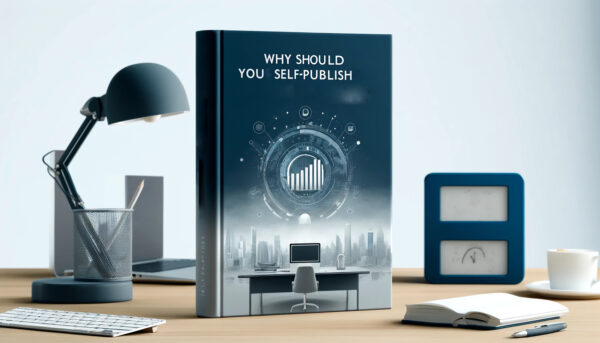Every writer dreams of seeing their book on the shelves of major bookstores, their words connecting with readers worldwide. But the road to publication can feel like navigating a maze, especially when you’re trying to figure out how to break into the traditional publishing industry.
One of the most important allies on this journey is a literary agent. A good literary agent doesn’t just sell your book—they become your business partner, guiding you through contracts, negotiations, and even shaping your career. Most writers seeking to publish with major publishing houses like Penguin Random House or HarperCollins need an agent to open those doors. However, finding the right agent isn’t as simple as sending your manuscript to anyone with “agent” in their title. It’s crucial to contact agents with a polished query letter and follow the specific guidelines provided by each agent.
Here’s the truth: the publishing world isn’t one-size-fits-all. While literary agents are vital for many, they’re not the only path to getting your work published. Whether you’re aiming for a traditional publishing deal or considering self-publishing, understanding how to find the right support is key. For a new writer, understanding the publishing process and writing a compelling query letter is essential to attract an agent’s attention.
In this comprehensive guide, we’ll walk you through how to find a literary agent, craft the perfect query letter, research agents effectively, and navigate the submission process. And if you decide that the traditional route isn’t for you, we’ll explore how Spines and self-publishing can help you bring your book to life through self-publishing.
Let’s take that first step toward turning your dream into reality.
What Does a Literary Agent Really Do?
A literary agent is more than just a middleman between you and a publisher—they’re your advocate in the competitive world of publishing. Their main role is to pitch your manuscript to editors at major publishing houses, negotiate contracts, and manage the business side of your writing career. Read more on how to find a literary agent here.
Most agents have established relationships with editors, giving your book a better chance of landing in the right hands. They know what publishers are looking for, what’s trending in the market, and how to position your book for success. A good agent can secure you better deals, higher advances, and more favorable royalty terms.
However, not every book requires an agent. For non-fiction authors, sometimes a strong book proposal is enough to interest a publisher. Children’s books or certain genre fiction can also find homes in small presses that accept unsolicited manuscripts. Understanding whether you need an agent depends on your goals and the type of book you’ve written. While most agents prefer initial contact through a query letter, there are a few agents who may request the entire manuscript or sample chapters up front.
Is a Literary Agent Right for You?
Before jumping into the agent search, ask yourself if the traditional publishing route is the best fit for you. Self-publishing has become a viable and profitable option for many authors, allowing full creative control and a faster path to market.
If your goal is to publish with major publishing houses or have your book stocked in big-box stores, an agent is often necessary. But if you’re looking to maintain full rights, have higher royalty rates, and control the marketing of your book, self-publishing through a platform like Spines might be your best bet. While you should not send the same manuscript to more than one agent at the same agency, promising works may still be circulated internally among agents within the same agency.
Consider your book’s genre, your publishing timeline, and how much involvement you want in the publishing process. Both paths have their pros and cons, and the right choice depends on your unique goals as an author.
Identifying Your Book’s Genre and Market Appeal
Identifying your book’s genre and market appeal is crucial to finding the right literary agent. Start by researching the different book genres and subgenres to categorize your book correctly. Visit bookstores and online retailers to find comp titles—books that fall in the same category as yours. This will help you understand your book’s unique characteristics and market appeal.
To identify your book’s genre, consider the following:
- Type of Book: Is it a romance, sci-fi, fantasy, mystery, or another genre?
- Themes: Does it explore love, redemption, self-discovery, or other themes?
- Tone: Is the tone humorous, serious, sarcastic, or something else?
- Writing Style: Is the writing lyrical, concise, descriptive, or another style?
Understanding your book’s genre and market appeal will help you research and target the right literary agents who are interested in representing books like yours. This step is essential in ensuring that your query letters reach agents who are genuinely interested in your type of work.
How to Research Agents and Find the Right Fit
Finding the right agent starts with thorough research. Not every agent will be a good fit for your book, so it’s important to target those who are actively seeking work in your genre. When you contact agents, submitting a polished query letter and following the agent’s specific guidelines is crucial.
Where to Look for Literary Agents:
- Publishers Marketplace – A great resource for researching what deals agents have made and what genres they represent.
- Agency Websites – Review submission guidelines, client lists, and recent sales.
- Online Directories – Websites like QueryTracker and Manuscript Wish List offer searchable databases of agents by genre.
- Acknowledgments in Books – Authors often thank their agents in the acknowledgment section. Look for books similar to yours.
- Google Search – A quick search can reveal interviews, wish lists, and submission preferences.
Look for agents who have a strong client list and have sold books to reputable publishers. A good agent will have experience in your book’s genre and a proven track record.
Tips for Researching Agents
Researching agents is a crucial step in finding the right literary agent for your book. Here are some tips to help you research agents effectively:
- Use Online Directories: Utilize online directories like Publishers Marketplace, QueryTracker, and AgentQuery to find literary agents who represent your genre. These directories provide valuable information about agents, including their sales records, client lists, and submission guidelines.
- Check Agent Websites: Visit the websites of potential agents to learn more about their interests, sales records, and client lists. Look for agents who have sold books similar to yours or who have expressed interest in your genre.
- Follow Agents on Social Media: Many agents are active on social media platforms like Twitter and Instagram. Follow them to get a sense of their interests, tastes, and communication styles.
- Attend Writing Conferences: Attend writing conferences and workshops where agents are in attendance. This is a great opportunity to meet agents in person, learn about their interests, and get feedback on your work.
- Read Agent Interviews: Read interviews with agents on websites like Writers Digest, Publishers Weekly, and The Bookseller. These interviews can provide valuable insights into an agent’s interests, tastes, and submission guidelines.
- Join Writing Communities: Join online writing communities like Writing.com, Absolute Write, and Reddit’s r/writing. These communities often have threads dedicated to agent research and can be a valuable resource for finding and researching agents.
- Be Cautious of Fake Agents: Be wary of agents who charge fees, have no sales record, or are not members of professional organizations like the Association of Authors’ Representatives (AAR).
- Research an Agent’s Sales Record: Look for agents who have a proven track record of sales in your genre. Check their client list and the publishers they’ve sold to.
- Check an Agent’s Submission Guidelines: Make sure to follow an agent’s submission guidelines carefully. Some agents may only accept email queries, while others may prefer online forms or snail mail.
- Research an Agent’s Communication Style: Look for agents who are responsive, communicative, and willing to work with you as a business partner.
By following these tips, you can effectively research agents and find the right literary agent for your book. Remember to always be cautious of fake agents and to carefully follow submission guidelines to increase your chances of success.
Crafting the Perfect Query Letter
Your query letter is your first impression—it needs to shine. A great query grabs the agent’s attention and makes them eager to read more.
Key Components of a Query Letter:
- Personalized Greeting – Address the agent by name. Show you’ve done your research.
- Hook – A compelling opening line that captures the essence of your story.
- Brief Summary – A concise description of your plot, main characters, and stakes.
- Author Bio – Relevant credentials, writing experience, or personal connection to the story.
- Closing – A polite sign-off, thanking them for their time.
Avoid sending generic queries to many agents. Instead, write personalized query letters that show why your book is a good fit for that specific agent.
Submission Guidelines: Read, Follow, Succeed
Agents receive hundreds of submissions, and many reject queries simply because writers don’t follow the submission guidelines.
What Agents Might Request:
- Query Letter only.
- Query + First 10 Pages or Sample Chapters.
- A complete book proposal (common for non-fiction).
- The entire manuscript (for new writers in some genres).
Always read and follow each agent’s instructions exactly. This shows professionalism and increases your chances of being read.
Following Up and Dealing with Responses
Following up with literary agents is essential to increase the chances of getting a response. Silence from an agent does not necessarily mean a rejection. A polite and timely follow-up email can make a significant difference in getting a response.
When following up, consider the following:
- Wait for the Specified Time Frame: Adhere to the time frame mentioned in the agent’s submission guidelines before sending a follow-up email.
- Keep It Brief: Your follow-up email should be concise and to the point, reiterating your interest in working with the agent.
- Be Professional: Avoid being pushy or aggressive, as this can harm your chances of getting a response.
When dealing with responses, consider the following:
- Be Prepared: If an agent requests a full manuscript or sample chapters, be ready to send them promptly.
- Handle Rejections Positively: If an agent rejects your query, don’t be discouraged. Use the feedback to improve your query letter and manuscript.
- Research Offers: If an agent offers representation, research their reputation and sales record before making a decision.
By following up professionally and handling responses thoughtfully, you can improve your chances of finding a literary agent who is the right fit for your work.
Navigating the Agent Search Process
The search for an agent can be long and challenging. Stay organized by tracking which agents you’ve queried, their responses, and any feedback received.
Expect rejection letters—even bestselling authors received many before landing a deal. If one agent passes, it doesn’t mean your book isn’t good. Keep querying and improving.
Evaluating Offers from Multiple Agents
If you receive multiple offers of representation from literary agents, it’s essential to evaluate each offer carefully. Consider the following factors:
- Sales Record and Reputation: Look into the agent’s track record and standing in the publishing industry.
- Communication Style: Assess the agent’s communication style and their level of enthusiasm for your work.
- Experience in Your Genre: Ensure the agent has experience and success in representing books in your genre.
- Commission Rate and Fees: Understand the agent’s commission rate and any additional fees they may charge.
When evaluating offers, ask yourself:
- Which agent seems most invested in my work and career?
- Which agent has the best sales record and reputation in the industry?
- Which agent’s communication style and level of enthusiasm align with my needs and expectations?
Ultimately, choose the agent who seems most passionate and enthusiastic about your work, and who has the best sales record and reputation in the industry. This will ensure a productive and supportive partnership.
What Happens After You Sign with an Agent?
Signing with a literary agent is exciting, but it’s just the beginning. Your agent will likely suggest revisions before submitting to publishers. Once your manuscript is ready, they’ll pitch it to editors, negotiate contracts, and help you secure a book deal.
A good agent will also guide your career long-term, helping you grow as an author.
Common Mistakes to Avoid
When searching for a literary agent, it’s essential to avoid common mistakes that can harm your chances of success. Consider the following:
- Targeting the Wrong Agents: Don’t query agents who don’t represent your genre or type of book.
- Ignoring Submission Guidelines: Don’t send a query letter or manuscript to an agent without researching their submission guidelines.
- Paying Upfront Fees: Don’t pay upfront fees to an agent or agency, as this is a red flag for scams.
- Not Asking Questions: Don’t be afraid to ask questions or seek clarification from an agent during the querying process.
- Getting Discouraged by Rejections: Don’t be discouraged by rejections or silence from agents. Keep querying and improving your work until you find the right agent.
By avoiding these common mistakes, you can increase your chances of finding a good literary agent who can help you achieve your publishing goals. Stay persistent, keep refining your approach, and you’ll be well on your way to success.
Alternatives to Literary Agents: Small Presses and Self-Publishing
Not every book needs an agent. Small presses often accept direct submissions and can be a great fit for niche genres.
If you want full control over your book and potentially earn more money per sale, self-publishing is a powerful option. Platforms like Spines make it easy for authors to publish professionally, with access to design, editing, and marketing services.
Conclusion: Your Story Deserves to Be Told
Finding the right literary agent takes time, patience, and persistence. Whether you land a contract with a major publishing house or choose to take control with self-publishing, the most important step is getting your work into the world.
If you’re ready to bypass the gatekeepers and bring your book to life, Spines is here to help. Spines stands as your gateway to the publishing realm, embodying the future of publishing. With a combination of advanced technology and seasoned publishing experts, our platform is designed to revolutionize your publishing journey.
We offer a suite of comprehensive services, including:
- Detailed editing and proofreading to polish your manuscript.
- Captivating cover creation that grabs readers’ attention.
- Global distribution to reach readers worldwide.
- Strategic marketing toolkits to help your book stand out in a crowded market.
With Spines, your book is not only set to transcend the ordinary but also to make a significant impact in the new era of publishing.
Sign up for free today and start your self-publishing journey with Spines. Your story deserves to be told—and Spines can help you tell it.
Your Publishing Journey Awaits – Start NowFAQ: Finding a Literary Agent
Q: Is it worth getting a literary agent?
Yes, if you want to be traditionally published. A literary agent helps secure publishing deals, negotiates contracts, and connects you with major publishers who don’t accept unsolicited submissions. However, if you prefer self-publishing, an agent is not necessary.
Q: Why is it so hard to find a literary agent?
Literary agents receive thousands of submissions but only take on a few clients per year. Competition is high, and agents look for books that fit market trends, have strong writing, and are commercially viable. Following submission guidelines and crafting a compelling query letter can improve your chances.
Q: Can I get a literary agent for free?
Yes, legitimate literary agents do not charge upfront fees. They earn a commission (typically 15%) from the book deals they negotiate for you. If an agent asks for payment before securing a deal, it’s likely a scam.
Q: How do I find a legitimate literary agent?
Research agents through reputable sources like Publisher’s Marketplace, Writer’s Digest, QueryTracker, and agency websites. Look for agents who represent your genre, check their client list, and ensure they have a track record of securing publishing deals.
Q: How many literary agents should I send my book to?
It’s common to query at least 20-50 agents to increase your chances of getting a response. Tailor each submission to the agent’s preferences, and if you receive rejections, revise your query or manuscript before sending more.
Q: How do you get picked up by a literary agent?
- Write a high-quality, marketable book.
- Craft a strong query letter and synopsis.
- Research and target agents who represent your genre.
- Follow submission guidelines carefully.
- Be patient and persistent, as response times vary.
Q: What do literary agents look for in a manuscript?
Agents seek strong writing, compelling storytelling, unique concepts, and market potential. They also consider the author’s platform (especially for nonfiction) and whether the book fits current publishing trends.








